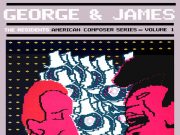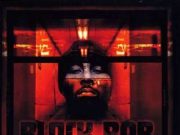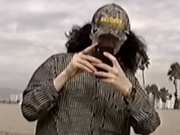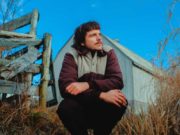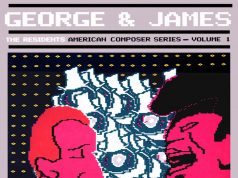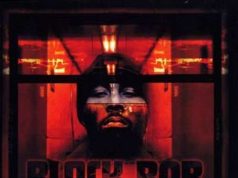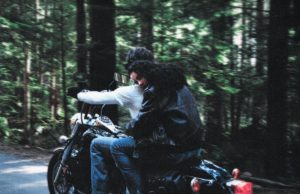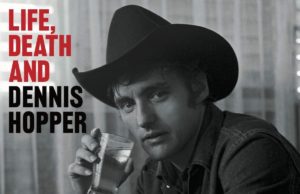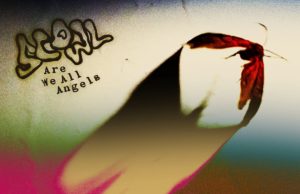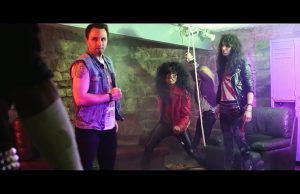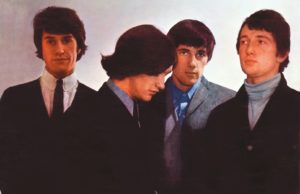Max Clouth realizes his full artistic potential with his groundbreaking and adventurous new album Entelecheia — showcasing today on Tinnitist.
The latest stunning release from the German double-neck jazz-guitar maverick, Entelecheia — also the name of his stellar backing combo — blends composition and spontaneity into an album full of surprises. On these seven tracks, complex chords and contrasting timbres both complement and compete with each other, while live electronics contrast with erupting guitar solos containing elements of Indian, Persian and West African music.
Entelecheia is a term from Aristotelian philosophy that describes an individual who carries perfection as a goal within themselves. It can refer to both the inherent power of self-realisation and the completed state. The title fits the album’s creative process. Clouth, who wrote five of the seven compositions, explains: “I sketched out the pieces in advance — like a notepad with musical themes that leave enough space to add something of my own. The pieces only became complete when we played together.” The final form for the compositions was developed in a post-production process lasting several months, in which Clouth edited the original recordings, recombined them and added further elements.
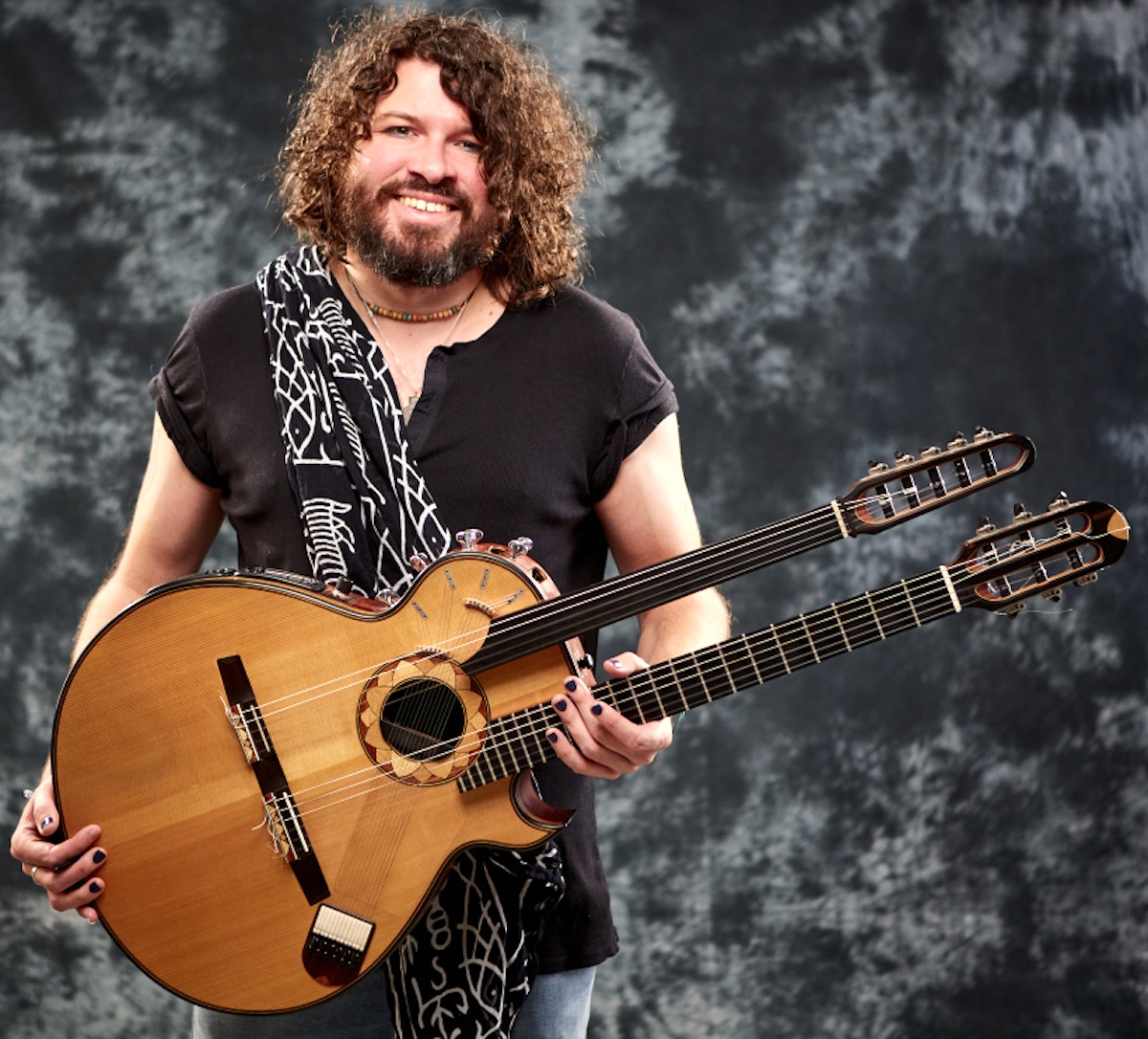
For the recordings, Clouth brought musicians Marja Burchard, Bodek Janke, Maasl Maier, Kabuki and Tony Clark into the studio. “It’s my personal dream band!” he enthuses. “What fascinated me were, on the one hand, the instrumental characteristics, but at least as much the people themselves and what results from the balance of power between these different personalities.” They spent a few days in a studio in the Black Forest in autumn: Not an existing band, but musicians coming together for the first time — “like a refreshing dip in the deep end.”
“Unique energy, creative people, extraordinary mixture of sound, rhythm and melody,” summarizes Janke, who contributes drums and tabla. One of the things that appealed to him was the mixture of acoustic instruments and the modular synthesizer. The latter is played by Frankfurt drum-and-bass legend Kabuki: “I saw my role primarily in countering the natural timbres and organic grooves with something mechanical and repetitive,” he says.
Meanwhile, Burchard can be heard on santoor, vibraphone, Wurlitzer and voice. She appreciates “the freedom with which everyone was able and allowed to contribute to this album. Every single colour comes out so beautifully. Many of the colours I have contributed are also connected to my history — the group Embryo, which was founded by my father in 1969 and which I have continued since his death.” Her spoken-word passages trigger images that — carried by the music — become poetry. For example, in Aszendent, she intones: “Fließende Atome, unsichtbare Wolken, über uns schwingende Federn aus Luft. Ein Atemzug.” Translation: “Flowing atoms, invisible clouds, feathers of air swinging above us. One breath.”

This breath is followed by Bernstein Purpur Gold, a piece whose concrete, cerebral metrics accompanied by the lightness of the vibraphone, lead into a contemplative space that Burchard fills with a calm voice, like a prayer, a mystical invocation. The synesthetically gifted Clouth chose the title because “for me it is the colours, the harmonies, the chords that play a role in the piece: A minor is amber, purple is G minor and C minor is golden.” Clouth explains further that the sounds, colours and forms that are expressed evoked images by the Swedish painter Hilma af Klint, whose combination of art and spirituality hold a space close to his heart. The cover of Entelecheia is inspired by her paintings.
If Bernstein Purpur Gold seems like a tale from paradise, Synthetic Stripes is a reflection of the materialistic digital zeitgeist. Composed by Burchard, this piece is a dystopia in the Krautrock tradition. Burchard’s voice sounds laconic, slightly enraptured, following a stream of consciousness against the backdrop of a towering interplay of modular synthesizer, shakuhachi and guitar. Instrumental solos and lost snippets of lyrics flash up until the track flows into a peaceful atmosphere. While the shakuhachi is usually associated with Japan, Zen and meditation music, Clark takes it out of its traditional framework: “I tried to retain the depth, the spiritual power of the instrument, to express the essence of what I have learned from my teachers and at the same time to play completely different sounds, new compositions. The result is interesting for me; the melodies, the sound material doesn’t seem to be as important as the breath, the spirit.”
Fourth track Emerald was composed by Kabuki. Clouth’s guitar solos spiral over a stoic rhythm, with the bass and vibraphone adding accents. Its repetitive foundation has something hypnotic about it, stretching the sense of time until its cool austerity is contrasted by a calm, flowing emotion in the final third. A new mental space has been reached. The rhythm sets in again, but is now more heartbeat than machine.

Sadhu is a bright, playful piece carried by tabla and guitar. Then comes the title track, an epic with a strong inwardness, a union of electronic angularity and acoustic softness. Crystalline sounds float over percussion and synthesizer hatchings. As is characteristic of the entire album, there are also several mood changes here. A daydream, a musical journey that Burchard magically illustrates with a whispering voice. The album concludes with Deszendent, carried by the interplay of shakuhachi, vibraphone and guitar over a synthesised ostinato sequence.
Clouth has studied guitar at the Hochschule für Musik Mainz, the Hochschule für Musik Carl Maria von Weber in Dresden, the Sangit Mahabharati Music School Mumbai and at the Swarnabhoomi Academy of Music. He also studied film music composition at the Filmakademie Baden-Württemberg in Ludwigsburg from 2015-2018.
The signature double-necked guitars he developed with luthier Philipp Neumann are based on traditional stringed instruments such as the oud or sarod. With his group Ragawerk / Max Clouth Clan, he has developed a musical style inspired by the Mahavishnu Orchestra, Kraftwerk, Led Zeppelin, Indian classical music and contemporary electronics. Together with Frankfurt electro artist Dan Bay, Max released the EP Voodoo Guitar in 2020. In 2021, the LP Lucifer Drowning In A Sea Of Light arrived. Clouth received the Frankfurt Jazz Scholarship in 2017 and has been teaching jazz guitar and ensemble at the FMW Frankfurter Musikwerkstatt since 2022.
Sample some of Entelecheia below, watch a couple of Max Clouth’s videos above, and join him on his website, Facebook and Instagram.



